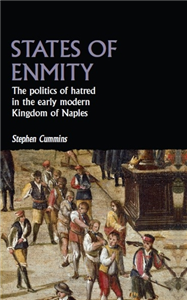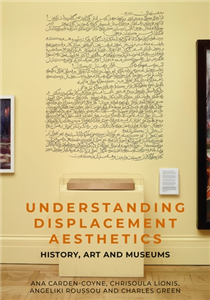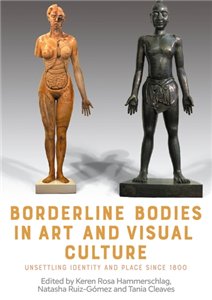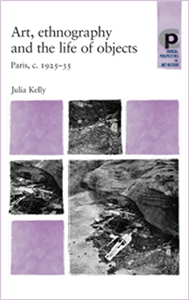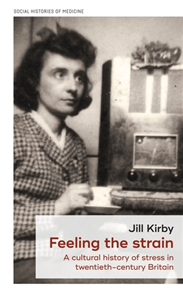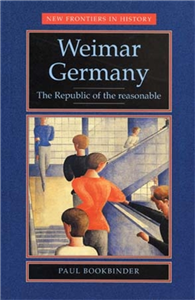Your Search Results
-
Promoted ContentThe ArtsJune 2025
Toronto New Wave cinema and the anarchist-apocalypse
by David Christopher
The Toronto New Wave (TNW) comprises a group of avant-garde filmmakers working in Canada from the 1980s and into the new millennium whose innovative film works share significant affinities with anarchist themes and aesthetics. Several of the TNW filmmakers openly identify as anarchists and/or acknowledge a debt to anarchism in their production of highly apocalyptic narratives as part of their cinematic political projects. However, recognition of anarchism's progressive apocalyptic theoretical relevance has yet to be substantially taken up by scholarship in cinema analysis. This analysis introduces an anarchist-inflected analytical methodology to understand the apocalyptic-revelatory political work these films attempt to accomplish in the perceptual space between the filmic texts and both their auteurs and potential viewers, and to re-locate the TNW within cinema history as an ongoing phenomenon with new significance in an apocalyptic era of digital distribution.
-
Promoted ContentHumanities & Social SciencesDecember 2024
States of enmity
The politics of hatred in the early modern Kingdom of Naples
by Stephen Cummins
State of enmity explores how relations of hatred and enmity played political and social roles in the early modern Kingdom of Naples. Exploring the pervasive notion of enmity and practices of reconciliation, the book provides new insight into the social dynamics of southern Italy in the early modern period. In particular, widespread banditry and the violent tenor of local politics are analysed through a wide variety of criminal trials and other sources.
-
 Trusted Partner
Humanities & Social SciencesJanuary 2026
Trusted Partner
Humanities & Social SciencesJanuary 2026Understanding displacement aesthetics
History, art and museums
by Ana Carden-Coyne, Charles Green, Chrisoula Lionis, Angeliki Roussou
Since the Second World War and the formalisation of the international refugee regime, forced displacement has been marked by a set of aesthetic, practical, and institutional concerns. Understanding Displacement Aesthetics examines how visual culture and art practice constructs and challenges ideas about forced displacement and refugees. The novel framework for 'displacement aesthetics' moves beyond conventional understandings of aesthetics as merely representational, demonstrating the entanglement of visual culture, art practices, and forced displacement in postmigrant contexts. Bringing together the fields of cultural history, art history, and curatorial studies, Understanding Displacement Aesthetics identifies four areas for consideration: visual tropes of refugeedom; language and identity; institutional and artistic responses to displacement; and lived experiences of artists with backgrounds of displacement. Through archival research, visual culture and art, interviews, and collaborative curatorship, Understanding Displacement Aesthetics offers new insight into overcoming the limitations that contexts of displacement can present for artists, art galleries and institutions addressing refugeedom and its legacies.
-
 Trusted Partner
The ArtsJanuary 2019
Trusted Partner
The ArtsJanuary 2019Joseph Losey
by Colin Gardner
The career of Wisconsin-born Joseph Losey spanned over four decades and several countries. A self-proclaimed Marxist and veteran of the 1930s Soviet agit-prop theater, he collaborated with Bertholt Brecht before directing noir B-pictures in Hollywood. A victim of McCarthyism, he later crossed the Atlantic to direct a series of seminal British films such as "Time Without Pity," "Eve," "The Servant," and "The Go-Between," which mark him as one of the cinema's greatest baroque stylists. His British films reflect on exile and the outsider's view of a class-bound society in crisis through a style rooted in the European art house tradition of Resnais and Godard. Gardner employs recent methodologies from cultural studies and poststructural theory, exploring and clarifying the films' uneasy tension between class and gender, and their explorations of fractured temporality.
-
 Trusted Partner
The ArtsJune 2021
Trusted Partner
The ArtsJune 2021Contemporary Spanish cinema and genre
by Jay Beck, Vicente Rodríguez Ortega
This volume is the first English-language collection exclusively dedicated to the study of genre in relation to Spanish cinema. Providing a variety of critical perspectives, the collection gives the reader a thorough account of the relationship between Spanish cinema and genre, drawing on case studies of several of the most remarkable Spanish films in recent years. The book analyses the significant changes in the aesthetics, production and reception of Spanish film from 1990 onwards. It brings together European and North American scholars to establish a critical dialogue on the topics under discussion, while providing multiple perspectives on the concepts of national cinemas and genre theory. In recent years film scholarship has attempted to negotiate the tension between the nationally specific and the internationally ubiquitous, discussing how globalisation has influenced film making and surrounding cultural practice. These broader social concerns have prompted scholars to emphasise a redefinition of national cinemas beyond strict national boundaries and to pay attention to the transnational character of any national site of film production and reception. This collection provides a thorough investigation of contemporary Spanish cinema within a transnational framework, by positing cinematic genres as the meeting spaces between a variety of diverse forces that necessarily operate within but also across territorial spaces. Paying close attention to the specifics of the Spanish cinematic and social panorama, the essays investigate the transnational economic, cultural and aesthetic forces at play in shaping Spanish film genres today.
-
 Trusted Partner
The ArtsJanuary 2019
Trusted Partner
The ArtsJanuary 2019Contemporary Spanish cinema and genre
by Jay Beck, Vicente Rodríguez Ortega
This volume is the first English-language collection exclusively dedicated to the study of genre in relation to Spanish cinema. Providing a variety of critical perspectives, the collection gives the reader a thorough account of the relationship between Spanish cinema and genre, drawing on case studies of several of the most remarkable Spanish films in recent years. The book analyses the significant changes in the aesthetics, production and reception of Spanish film from 1990 onwards. It brings together European and North American scholars to establish a critical dialogue on the topics under discussion, while providing multiple perspectives on the concepts of national cinemas and genre theory. In recent years film scholarship has attempted to negotiate the tension between the nationally specific and the internationally ubiquitous, discussing how globalisation has influenced film making and surrounding cultural practice. These broader social concerns have prompted scholars to emphasise a redefinition of national cinemas beyond strict national boundaries and to pay attention to the transnational character of any national site of film production and reception. This collection provides a thorough investigation of contemporary Spanish cinema within a transnational framework, by positing cinematic genres as the meeting spaces between a variety of diverse forces that necessarily operate within but also across territorial spaces. Paying close attention to the specifics of the Spanish cinematic and social panorama, the essays investigate the transnational economic, cultural and aesthetic forces at play in shaping Spanish film genres today.
-
 Trusted Partner
Trusted Partner
-
 Trusted Partner
The ArtsFebruary 2026
Trusted Partner
The ArtsFebruary 2026Caribbean eco-aesthetics
Strategies of survival through contemporary art
by Kate Keohane, Daniella Rose King, Giulia Smith
This edited volume reframes the Caribbean as a paradigm of ecological resilience and creativity by bringing together the voices of contemporary artists and scholars who are at the forefront of environmental activism in the region and across its diasporas. While dominant narratives percolating from the environmental sciences to the mainstream press present the Caribbean as a frontier of planetary disaster, the contributors to this volume show how the region offers radical models for overcoming the environmental challenges of the present. At the heart of this argument lies the history of the Caribbean as a centre for grassroots forms of anti-colonial and anti-capitalist resistance founded upon nature-centred cosmologies and practices. Caribbean Eco-Aesthetics shows how contemporary artists are mobilising this radical heritage in a bid to unlock alternative planetary futures.
-
 Trusted Partner
The ArtsJune 2026
Trusted Partner
The ArtsJune 2026Borderline bodies in art and visual culture
Unsettling identity and place since 1800
by Keren Hammerschlag, Natasha Ruiz-Gómez, Tania Anne Cleaves
Borderline bodies offers original interpretations of visual representations of human bodies as bounded and unbounded, fortified and permeable, mobile and static-subject to borders and able to traverse and challenge them. It also takes as its focus images and objects that might be considered 'borderline' because they sit at the intersection of disciplines or sit outside accepted notions of what constitutes serious 'art.' By mapping the ways human bodies traverse borders and straddle-even dismantle-categories, this volume's essays approach afresh the relationship of bodies to traditional modes of representation, especially in art and medicine, and encourage us to think anew about how we understand the relationship between human corporeality, identity and place. Critical transdisciplinary and transnational analyses of objects and images from a range of geographies shed new light on the themes of: bodies and identity; typologies of the body; racialised bodies; 'normal' and 'abnormal' bodies; encounters between bodies; bodies in transition; bodies and mobility; and the bounded and unbounded human body. The outcome is a fresh approach to depictions of the human body produced for the purposes of artistic and medical education, aesthetic edification, and scientific and professional advancement, which disrupts assumptions about the normative human body perpetuated through Western image-making traditions.
-
 Trusted Partner
Trusted Partner
-
 Trusted Partner
Humanities & Social SciencesJune 2021
Trusted Partner
Humanities & Social SciencesJune 2021The security dimensions of EU enlargement
by David Brown, Alistair Shepherd
-
 Trusted Partner
Literature & Literary StudiesAugust 2022
Trusted Partner
Literature & Literary StudiesAugust 2022Edmund Spenser and the romance of space
by Tamsin Badcoe
Edmund Spenser and the romance of space advances the exploration of literary space into new areas, firstly by taking advantage of recent interdisciplinary interests in the spatial qualities of early modern thought and culture, and secondly by reading literature concerning the art of cosmography and navigation alongside imaginative literature with the purpose of identifying shared modes and preoccupations. The book looks to the work of cultural and historical geographers in order to gauge the roles that aesthetic subjectivity and the imagination play in the development of geographical knowledge: contexts ultimately employed by the study to achieve a better understanding of the place of Ireland in Spenser's writing. The study also engages with recent ecocritical approaches to literary environments, such as coastlines, wetlands, and islands, thus framing fresh readings of Spenser's handling of mixed genres.
-
 Trusted Partner
Humanities & Social SciencesJanuary 2019
Trusted Partner
Humanities & Social SciencesJanuary 2019Labour united and divided from the 1830s to the present
by Emmanuelle Avril, Yann Béliard
Spanning a period which stretches from the 19th century to the present day, this book takes a novel look at the British labour movement by examining the interaction between trade unions, the Labour Party, other parties and groups of the Left, and the wider working class, to highlight the dialectic nature of these relationships, marked by consensus and dissention. It shows that, although perceived as a source of weakness, those inner conflicts have also been a source of creative tension, at times generating significant breakthroughs. The book brings together labour historians and political scientists who provide a range of case studies as well as more wide-ranging assessments of recent trends in labour organising. It will therefore be of interest to academics and students of history and politics, as well as to practitioners, in the British Isles and beyond.
-
 Trusted Partner
The ArtsJanuary 2012
Trusted Partner
The ArtsJanuary 2012Art, ethnography and the life of objects
Paris, c.1925–35
by Julia Kelly, Marsha Meskimmon, Shearer West, Tim Barringer
In the 1920s and 1930s, anthropology and ethnography provided new and striking ways of rethinking what art could be and the forms which it could take. This book examines the impact of these emergent disciplines on the artistic avant-garde in Paris. The reception by European artists of objects arriving from colonial territories in the first half of the twentieth century is generally understood through the artistic appropriation of the forms of African or Oceanic sculpture. The author reveals how anthropological approaches to this intriguing material began to affect the ways in which artists, theorists, critics and curators thought about three-dimensional objects and their changing status as 'art', 'artefacts' or 'ethnographic evidence'. This book analyses texts, photographs and art works that cross disciplinary boundaries, through case studies including the Dakar to Djibouti expedition of 1931-33, the Trocadéro Ethnographic Museum, and the two art periodicals Documents and Minotaure. Through its interdisciplinary and contextual approach, it provides an important corrective to histories of modern art and the European avant-garde. ;
-
 Trusted Partner
Humanities & Social SciencesJune 2024
Trusted Partner
Humanities & Social SciencesJune 2024Passages
On Geo-Analysis and the aesthetics of precarity
by Sam Okoth Opondo, Michael J. Shapiro
Passages: On geo-analysis and the aesthetics of precarity is a multi-genre and transdisciplinary text addressing themes such as colonialism, nuclear zones of abandonment, migration control regimes, transnational domestic work, the biocolonial hostilities of the hospitality industry, legal precarities behind the international criminal justice regime, the shadow-worlds of the African soccerscape, and immunity regimes related to the COVID-19 pandemic. This book invites inquiry into today's apocalyptic narratives, humanitarian reason, and international criminal justice regimes, as well as the precarity generated by citizen time and 'consulate time'. The aesthetic breaks emerging from the book's image-text montage draw attention to the ethics of encounter and passage that challenges colonial, domestic, and nation-statist sovereignty regimes of inattention.
-
 Trusted Partner
MedicineOctober 2015
Trusted Partner
MedicineOctober 2015Burnout and Chronic Occupational Stress
A Guide for Those Affected and Their Relatives
by Andreas Hillert/Stefan Koch/Dirk Lehr
In today’s work environment, which is dominated by high pressure, many professionals are experiencing chronic stress, some even "burn out". This guide provides information about the connection between occupational stress and burnout. It presents scientifically sound and proven strategies for counteracting chronic stress. The model of the “gratification crisis”, which states that an imbalance between professional engagement and the obtained gratifications, e.g. salary and appreciation, leads to persistent stress and an increased risk of physical and mental illness, is the focus of this guide. Based on case studies and concrete instructions, readers are supported in reviewing their own situation. The guide goes on to present coping strategies, e.g. how important decisions can be made in high stress situations, how to avoid vague assessments, how to strengthen the ability to distance oneself after work, and how to improve quality of leisure time. This title can be used as a stand-alone guide as well as supplemental material to coaching or therapy. Target Group: psychotherapists, specialists for psychiatry and psychotherapy, specialists for psychosomatic medicine and psychotherapy, clinical and health psychologists, occupational and organizational psychologist, rehabilitation psychologist, coaches, students and teachers of psychology, supervisors
-
 Trusted Partner
Humanities & Social SciencesJune 2021
Trusted Partner
Humanities & Social SciencesJune 2021Feeling the strain
A cultural history of stress in twentieth-century Britain
by Jill Kirby
Examining the popular discourse of nerves and stress, this book provides a historical account of how ordinary Britons understood, explained and coped with the pressures and strains of daily life during the twentieth century. It traces the popular, vernacular discourse of stress, illuminating not just how stress was known, but the ways in which that knowledge was produced. Taking a cultural approach, the book focuses on contemporary popular understandings, revealing continuity of ideas about work, mental health, status, gender and individual weakness, as well as the changing socio-economic contexts that enabled stress to become a ubiquitous condition of everyday life by the end of the century. With accounts from sufferers, families and colleagues it also offers insight into self-help literature, the meanings of work and changing dynamics of domestic life, delivering a complementary perspective to medical histories of stress.
-
 Trusted Partner
Trusted Partner
-
 Trusted Partner
Health & Personal Development
Trusted Partner
Health & Personal DevelopmentMore Peace, Less Stress
A Step-by-Step Guide for Adults with ASD
by Marja Boxhoorn
When you have autism, you probably have to cope with stress on a daily basis. Often, people with autism do not know how to recognize stress, what causes stress, and what they can do to reduce it. More peace, less stress offers a useful step-by-step plan. In seven steps, the reader learns what causes stress, how to recognise stress signals, and what they can do to feel more at ease. The book includes practical exercises so new knowledge can be applied right away. Being more at ease means to be able to: have better relationships with a partner, family, friends and colleagues, focus attention to get things done more easily, have a grip on life, instead of experiencing chaos, restlessness and insecurity and feel more powerful and have more self-esteem.
-
 Trusted Partner
Humanities & Social SciencesOctober 1996
Trusted Partner
Humanities & Social SciencesOctober 1996Weimar Germany
The republic of the reasonable
by Paul Bookbinder
The Weimar period, which extended from 1919 to 1933, was a time of political violence, economic crisis, generational and gender tension, and cultural experiment and change in Germany. Despite these major issues, the Republic is often treated only as a preface to the study of the rise of Fascism. This text seeks to restore the balance, exploring the Weimar period in its own right. Amongst the topics discussed are: Weimar as the avant-garde artistic centre of Europe in the 1920s when many cultural figures were politically engaged on both sides of the political spectrum; Weimar as a German state racked by conflict over questions of morality versus ideas of greater sexual freedom for women, homosexual rights, abortion and birth control; the struggle to win the hearts and minds of German youth, a struggle won decisively by the right-wing; and Weimar as the first German state in which women played a significant political role. ;




